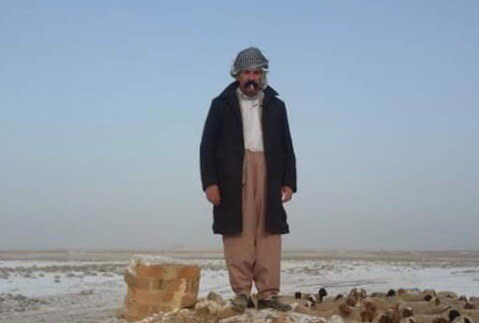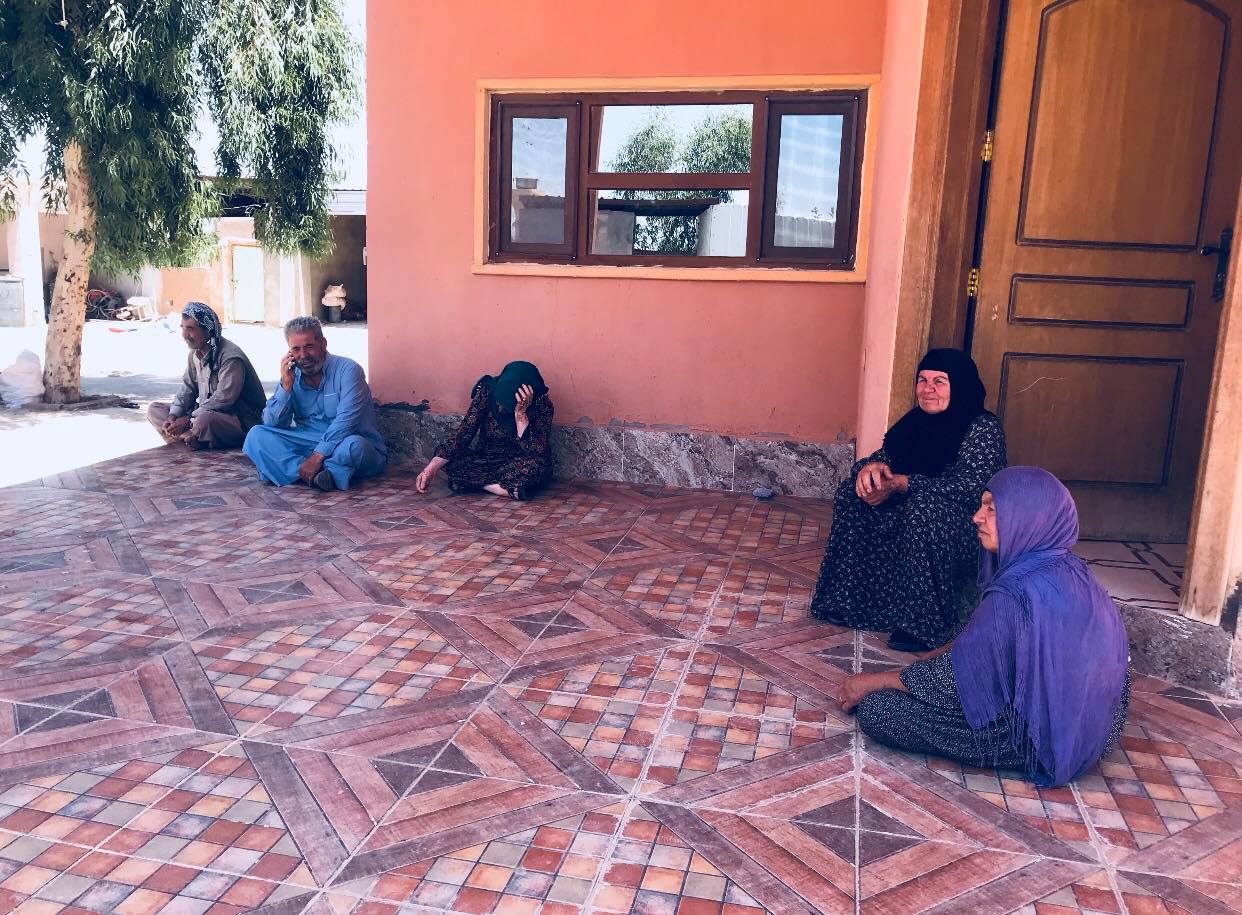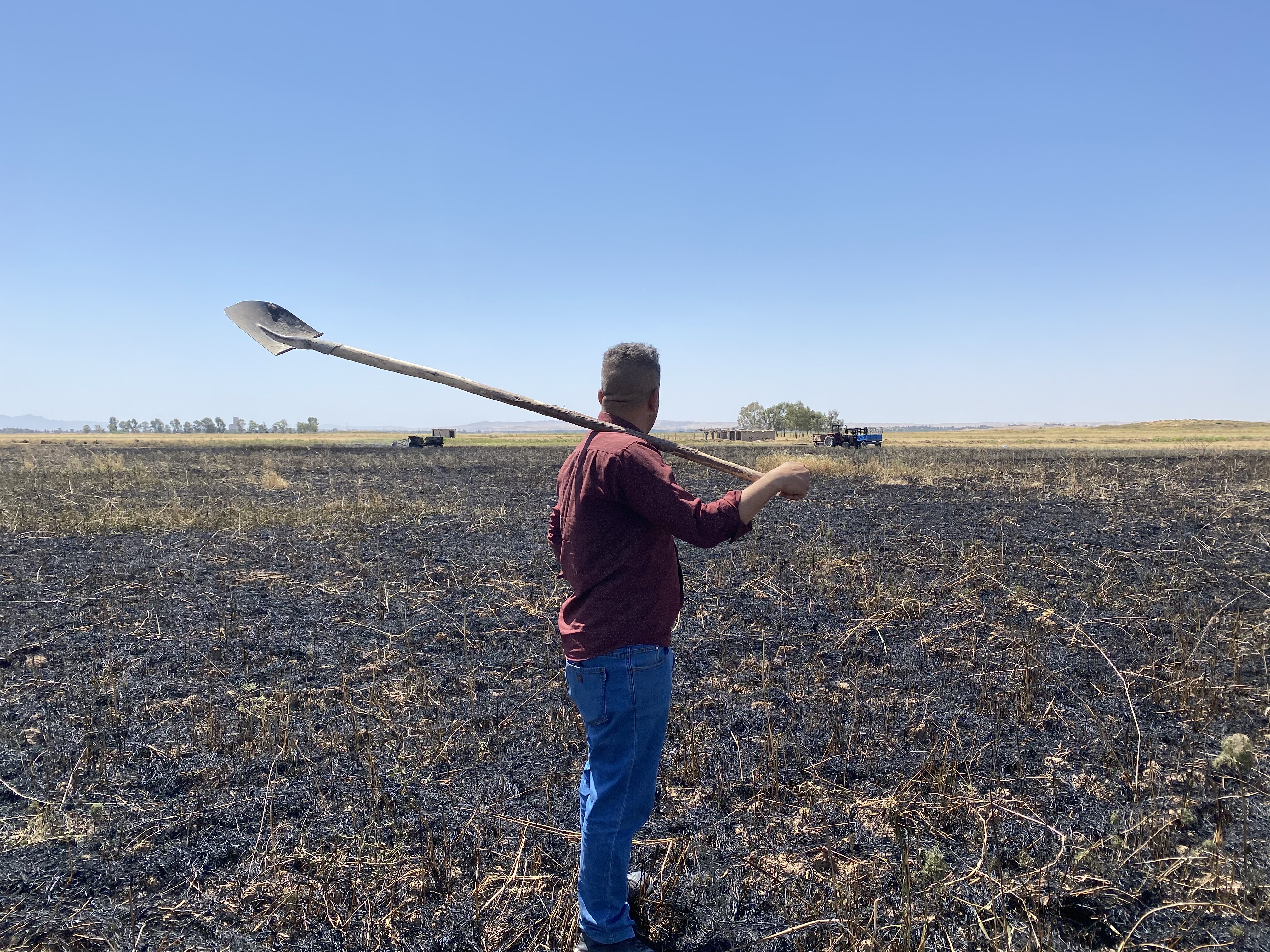Violence and threats forced Naji Khurshid Kakai to unwillingly abandon his warm house surrounded by his relatives and to begin living in displacement. However, he could not live in peace even in displacement and what he mostly feared happened to him; the loss of his beloved ones.
On May 10, at 9: 30 p.m., several gunmen raided the grain field of Khurshid’s family, where they killed two farmers, burned three tractors, and set their wheat and barley crops on fire.
Khurshid is one of many members of Kakai minority in Iraq who are constantly under threat from different militant groups both at home and in displacement.
This attack happened at a time when the Iraqi forces are commanded to enforce a curfew, which is aimed at preventing the outbreaks of the novel coronavirus.
The raid took place in Mikhas village in Khanaqin district, north eastern Diyala province, where Khurshid Kakai and his family have settled for three years after abandoning their village, Zangari, in Daquq district, southern Kirkuk.
The farmers were having dinner after a long day of harvesting their crops
“The farmers were having dinner after a long day of harvesting their crops; when the gunmen approached and started shooting, two farmers immediately died there,” Naji Khurshid Kakai said.
The two victims were Burhan Hattam, son in law of Khurshid Kakai and Nabard Nasri, a nephew. Their bodies were found the next day.
Khurshid Kakai’s family grow the crops and annually harvest their products. A family tradition of members of an Iraqi minority, who are in constant danger of violence.

Naji Khurshid Kakai, 68 years old.
The residents of Mikhas village told KirkukNow that they believe that “the perpetrators were members of the Islamic State groups (IS),” whose snipers shot the villagers until dawn the next day, which prevented other villagers from rescuing the farmers. The gunmen, however, set the driver of a harvester free before burning the grain fields.
Khurshid, 68, is a father of four daughters and two sons. He is originally from the Kakai village of Zanqar in Daquq district, 44 km southern Kirkuk.
A son of Khurshid Kakai was among those who desperately rushed to free the farmers. However, he came under fire and forced to leave his tractor; he miraculously survived the attack.
“We abandoned home and other properties in Zanqar village and sheltered in Khanaqin to be safe, but we here lost our loved ones and our properties,” Khurshid told KirkukNow at the funeral of the victims.
We abandoned home and other properties in Zanqar village and sheltered in Khanaqin to be safe
“Since the advance of IS to their areas, the Kakai villages, in particular Zanqar, has been under constant threat and attacks of the group as it is the last Kurdish village in south western Daquq.”
Khurshid said that they earlier protected their areas with the backup of the Kurdish Peshmerga forces. They took up arms alongside the Peshmerga to protect their villages at night.
“We feared to be abducted and massacred by the IS, similar to the way they abducted and mass killed the Ezidis, so we guarded our areas. We went through challenging days and the attacks have increased after October 2017,” Khurshid added.

Kirkuk, the family of Khurshid Kaki in Zanqar village in Daquq district, 2018. Photo: KirkukNow
On October 16, 2017, tensions between the Iraqi federal government and Kurdistan Regional Government (KRG) in the north reached its peak due to the Kurdish independence referendum, that the Kurdish forces withdrew from disputed areas and were replaced by the Iraqi forces.
Khurshid mentioned that the insurgent group has exploited the insufficient numbers of Iraqi troops in the areas and attacks have resulted in the displacement of many families.
The family of Khurshid lives in Mikhas village among many other displaced families.
“It was the saddest day, when the brothers and the cousins were separated, each moved to a place, which was the first time we experienced this breakup,” Shvan Azad, the cousin of Khurshid said.
It was the saddest day, when the brothers and the cousins were separated
Azad added that displacement was full of challenging days for his cousin, it was a beginning of misery and distress until his cousin returned to farming, when he was given a house with the help of the people of Mikhas village.
The misfortune of the Kakais has not only been such an attack. Over the past three years, many areas of Khanaqin district have been under the occasional attacks by armed groups, forcing Kakais to evacuate 12 villages.
In displacement, Khurshid had a cardiovascular operation and his son died of a heart attack as well.
“Displacement, distress, and misery didn’t leave us alone,” Khurshid expressed his feeling.
The Kakais came under 15 different attacks in the last two months in Kirkuk, Nineveh, and Diyala, when a nationwide lockdown was in place. The Iraqi security forces are yet to ensure the safety of the Kakais.
Adham Hattam, a brother of one of the victims, through KirkukNnow, called upon the Iraqi government and the KRG to deploy more forces to their areas to stabilize the security situation,
Kakis have their own religion and live in many areas in Iraq including Nineveh, Kirkuk, Halabja, Erbil, Khanaqin, and other places in Diyala province. Unconfirmed figures show that the Kakai Population is estimated at 100 thousands.
Kakai, similar to Turkmen, Christian, and Ezidi minorities, were subjected to ISIS atrocities from 2014 to 2017. Many Kakai families still live in displacement, to the fact that 10 percent of the 787 Internally Displaced Persons (IDPs) in the Kurdistan Region are Kakais, Turkmen, Shabak, and Armenian.





